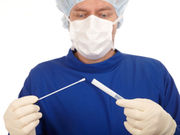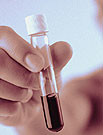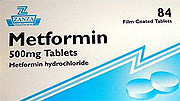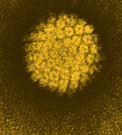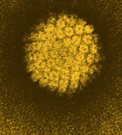Tag: Cancer: Throat
ASTRO: Less Treatment Effective in HPV-Related Oropharynx CA
Lower doses of chemotherapy, radiation may also reduce unwanted side effects
High-Dose Hypofractionated RT Palliative in Head, Neck Cancer
Meaningful palliative effect for 63 percent of patients, lasting for median of 4.6 months
No Specific Findings to ID Recurrence in Head and Neck CA
No definite index of symptoms or signs indicating local recurrence, second primary malignancy
Hematologic Markers Predict Nasopharyngeal Cancer Survival
High neutrophil-lymphocyte, platelet-lymphocyte ratios tied to shorter survival
Metformin Linked to Lower Risk of Head, Neck Cancer
Diabetes patients treated with the drug less likely to develop oropharyngeal, nasopharyngeal cancers
ERCC1 SNP Can Identify Good Prognosis in Nasopharyngeal CA
ERCC1 C118T genotype may identify good prognosis in subgroup of pEBV-negative patients
Veterans Have Poor Oral, Throat Cancer Outcomes
In oropharyngeal squamous cell carcinoma, overall survival at five years is 40 percent
HPV16 DNA in Oral Rinses at Oropharyngeal Cancer Diagnosis
But rarely seen after treatment; correlations for persistent HPV16 DNA with worse survival
Blood, Saliva Tests May Help ID Head and Neck Cancers Early
Study shows potential for noninvasive tumor detection
Meta-Analysis: Oral Sex Is Not Risk Factor for Oral Cancer
Analysis shows no significant correlation between oral sex and oral cancer risk


